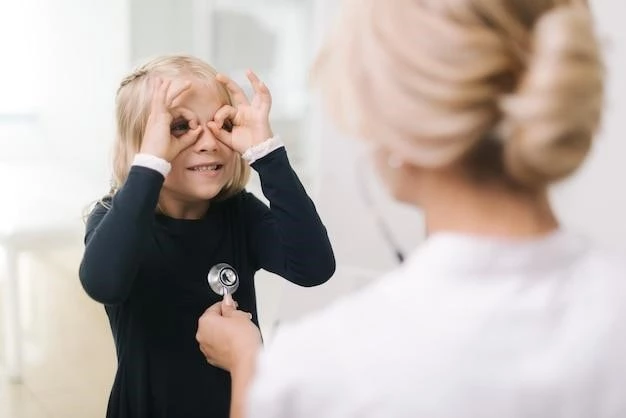Causes of Acrorenoocular Syndrome
The primary cause of Acrorenoocular Syndrome is genetic mutations affecting key development pathways in the body. These mutations disrupt the normal growth and function of tissues and organs‚ leading to the characteristic features of the syndrome.
Specific genes involved in the syndrome have been identified‚ with variations in these genes contributing to the different aspects of the condition. While the exact triggers for these mutations are not fully understood‚ ongoing research aims to uncover more about the underlying causes of Acrorenoocular Syndrome.
Symptoms and Signs of Acrorenoocular Syndrome
Individuals with Acrorenoocular Syndrome may present with a range of symptoms including limb abnormalities‚ renal issues‚ and ocular abnormalities such as cataracts and colobomas. These features can vary in severity and combination‚ impacting overall health and quality of life.
Other signs may include craniofacial anomalies‚ cardiac defects‚ and developmental delays. The diverse nature of symptoms requires a comprehensive evaluation by healthcare professionals familiar with the syndrome. Early recognition of these manifestations is crucial for timely intervention and management to address the specific needs of individuals with Acrorenoocular Syndrome.
Diagnosis of Acrorenoocular Syndrome
Diagnosing Acrorenoocular Syndrome involves a thorough clinical evaluation‚ medical history review‚ and specialized tests. Genetic testing plays a crucial role in confirming the presence of specific mutations associated with the syndrome.
Imaging studies‚ such as X-rays and ultrasounds‚ help assess skeletal abnormalities and internal organ structures. Ophthalmological examinations are essential to identify ocular abnormalities. A multidisciplinary approach involving geneticists‚ pediatricians‚ ophthalmologists‚ and other specialists is key to reaching an accurate diagnosis and initiating appropriate management strategies for individuals with Acrorenoocular Syndrome.
Treatment Options for Acrorenoocular Syndrome
The management of Acrorenoocular Syndrome focuses on addressing specific symptoms and complications. Treatment may involve surgical interventions to correct skeletal abnormalities‚ renal issues‚ and ocular defects.
Therapies such as physical and occupational therapy can help improve mobility and functionality. Regular monitoring by healthcare providers is essential to detect and manage any emerging issues promptly. Genetic counseling provides valuable information to affected individuals and their families‚ supporting informed decision-making about treatment options and care plans tailored to the unique needs of those with Acrorenoocular Syndrome.
Prognosis and Outcomes of Acrorenoocular Syndrome
The prognosis for individuals with Acrorenoocular Syndrome varies widely depending on the severity of symptoms and timely interventions. Early detection and comprehensive management can improve long-term outcomes.
While some manifestations of the syndrome may be challenging to treat‚ ongoing research and advances in medical care offer hope for enhanced prognosis. Regular follow-ups‚ monitoring of symptoms‚ and multidisciplinary support can help optimize the quality of life for individuals affected by Acrorenoocular Syndrome.
Research Advances in Acrorenoocular Syndrome
Ongoing research into Acrorenoocular Syndrome focuses on understanding the genetic mechanisms underlying the condition and developing targeted therapies. Advances in genetic sequencing technologies have facilitated the identification of novel gene mutations associated with the syndrome.
Researchers are exploring potential treatment options to address specific aspects of the syndrome‚ aiming to improve outcomes and quality of life for affected individuals. Collaborative efforts across disciplines continue to propel research forward‚ offering promising prospects for better diagnosis‚ management‚ and ultimately‚ a deeper understanding of Acrorenoocular Syndrome.
Genetic Factors in Acrorenoocular Syndrome
Acrorenoocular Syndrome has a strong genetic basis‚ with specific gene mutations playing a central role in its development. Variations in genes involved in embryonic development and tissue formation can lead to the diverse clinical features of the syndrome.
Understanding the genetic factors contributing to Acrorenoocular Syndrome is essential for accurate diagnosis and tailored treatment approaches. Genetic counseling can provide valuable insights into the inheritance pattern of the syndrome and guide family planning decisions. Ongoing genetic studies aim to expand knowledge of the genes implicated in Acrorenoocular Syndrome‚ paving the way for targeted therapies and improved management strategies.

Understanding Acrorenoocular Syndrome
Management Strategies for Acrorenoocular Syndrome
Effective management of Acrorenoocular Syndrome involves a multidisciplinary approach to address the diverse symptoms and complications associated with the condition. Individualized treatment plans tailored to each patient’s specific needs are essential.
Regular monitoring by a team of healthcare professionals‚ including geneticists‚ ophthalmologists‚ orthopedic specialists‚ and other experts‚ is crucial to optimize care. Physical therapy‚ occupational therapy‚ and surgical interventions may be recommended to improve functional abilities and address developmental delays. Providing comprehensive support and resources for affected individuals and their families is key to enhancing their overall well-being and quality of life.
